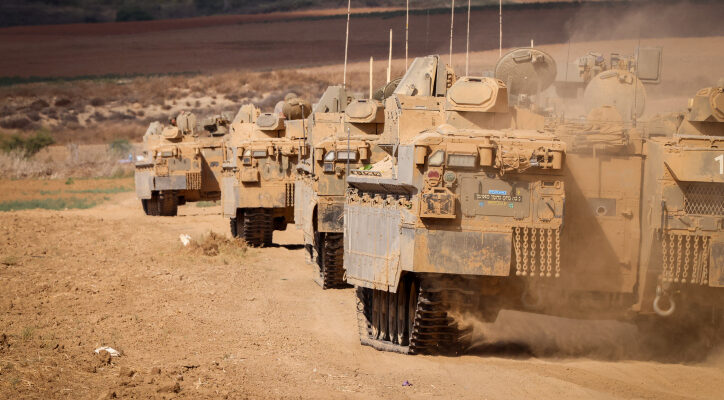While there are concerns that Hamas will use the cease-fire to weaken Israel, the IDF seems very confident in the continuation of their mission after the hostages are returned.
By Yaakov Lappin, TPS
The Israel Defense Forces has expressed confidence in its ability to preserve its operational achievements in the northern Gaza Strip, including Gaza City, during a truce with Hamas, designed to facilitate a hostage release deal.
“We will know how to deal with any decision and know how to prepare in such a way that will preserve our operational status, our operational achievements, and also how to protect the framework [for a hostage release],” IDF Spokesperson Rear Adm. Daniel Hagari said on Wednesday night.
“This is a long war that will have many stages and this framework will apparently also have stages,” said Hagari. “To meet our war objectives, we will know how to preserve our operational achievements, and to prepare for the next stages in the war.”
Professor Col. (res.) Gabi Siboni, a senior fellow at the Jerusalem Institute for Strategy and Security (JISS), discussed the challenges of the truce and pathways to overcoming them.
“Always, when there is a stoppage, idleness is the mother of all sins for soldiers. It is not good to be idle, hence the forces must be activated, for training, and for conducting after-action reviews of their activity,” said Siboni, who is also a senior consultant to the IDF and other Israeli security organizations, and deputy head and chief methodologist of the IDF’s Research Center for Force Deployment and Buildup.
Siboni, who within the scope of his reserve service also served as chief of staff of the Golani Infantry Brigade, and of a division during the 2006 Second Lebanon War, added that force rotations and refreshing units would occur in any case, but a truce could assist that, as well as the transfer of fresh equipment.
Asked to address the truce condition of having six hours a day free of intelligence-gathering drones over Gaza, he said, “The IDF will have other ways of building an intelligence picture and for preserving its achievements. This is not the end of the world. There are all kinds of capabilities.”
Restarting the offensive after the truce is fully within Israel’s abilities, he said, noting that “war always starts before there is fighting, and so will it again. Plans will be made and orders will be given. There is no change in the mission. The main goal will not change—the full destruction of Hamas,” Siboni said, adding that Israel will seek to kill every known Hamas terrorist.
Dr. Ely Karmon, a senior research scholar at the International Institute for Couter-Terrorism, at Reichman University in Herzliya, said, “I have no doubt that Hamas will try to leverage it [the ceasefire].”
Hamas could move some of the hostages to prevent Israel from finding out their locations. It could also check what stockpiles of weapons remain, such as rocket launchers, and then either use them or move them, Karmon said. And senior Hamas leaders in Gaza could try to change positions, out of the sight of air force drones.
Karmon said that Israel must not agree to truce days in exchange for Thai, Nepalese and other non-Israeli hostages. He added that the governments of Thailand, Nepal and other states are being quiet about their citizens being held by the terrorists. “Why don’t they apply to the U.N. Security Council and the Red Cross to see them?” he asked,
Reports that Hezbollah will also observe the truce indicate that the Lebanese Shi’ite terror organization could also be experiencing exhaustion, he said. “I don’t think we should agree to a let-up in Lebanon,” said Karmon. “Hezbollah is after all the initiators of provocations.”
He added that there appears to be stepped-up Israeli action against Hezbollah and other Shi’ite militias in Syria, according to foreign media reports.





